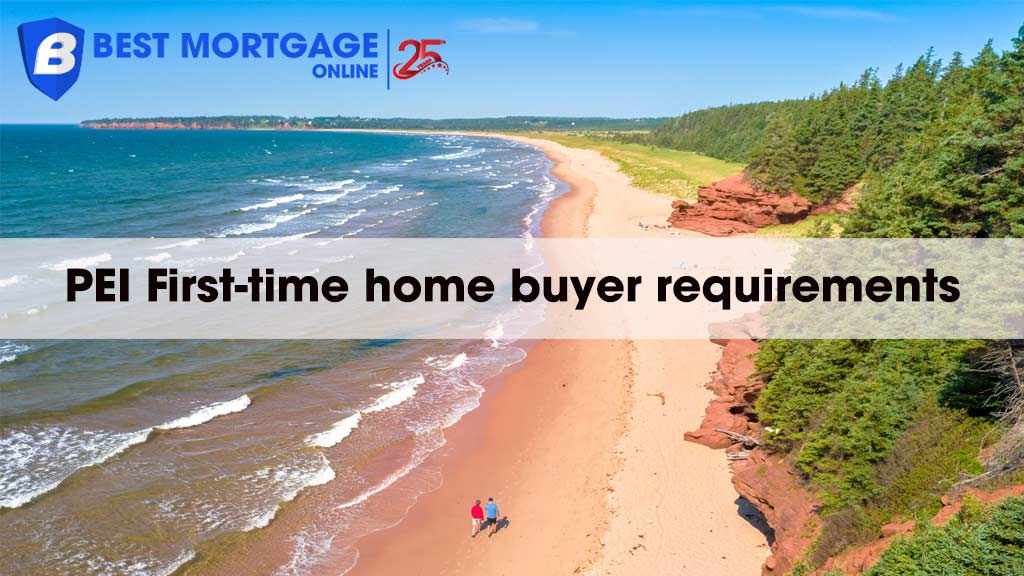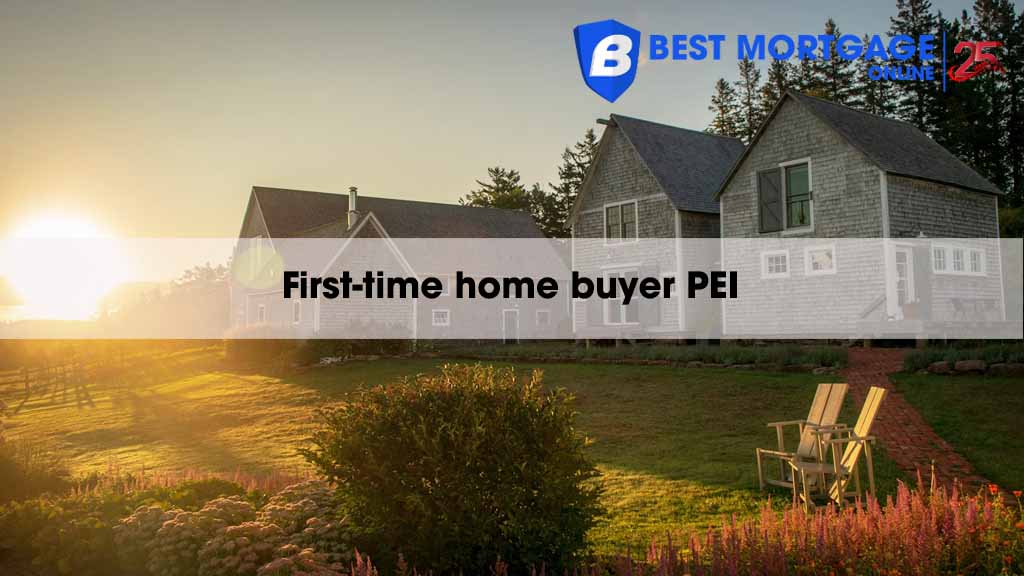Prince Edward Island offers several programs that help with your down payment and tax breaks that save you thousands of dollars, from the Down Payment Assistance Program that can lend you up to $17,500 to tax exemptions that put money back in your pocket. Every first-time home buyer in PEI should understand these programs to be successful in this competitive market.
Key requirements for the PEI first-time home buyer grant

There are six standard requirements for these PEI incentives:
- Canadian citizen or permanent resident status
- Good credit history with no defaults on government debts
- The home must be in PEI and be your primary residence
- You must qualify for mortgage insurance through a bank or credit union
- You are a first-time home buyer who has never owned a home before
- Have not lived in a home you or your spouse owned in the past 4 years
Your spouse or partner must apply with you, even if they are not on the mortgage. Or, you need to start fresh after a divorce or separation. This ensures the program assesses your true household financial situation.
What are the first-time home buyer incentives in PEI?
The main provincial supports include the Down Payment Assistance Program (DPAP) and the Real Property Transfer Tax exemption. On top of these, you can tap into federal programs. These PEI first-time home buyer incentives work together to reduce both your upfront costs and ongoing financial burden.
Down Payment Assistance Program for PEI first-time home buyers
This pilot program runs until March 31, 2026. It offers loans that can cover a chunk of your down payment to make homeownership possible, even if you have not saved the full 5% minimum.
It offers four advantages for eligible first-time home buyers:
- Use the money specifically for your down payment
- Borrow up to 5% of your home’s purchase price (maximum $17,500)
- Pay back over 10 years with no interest charges if you make all payments on time
- Option to skip payments for the first year while you settle into homeownership
How to qualify for DPAP in Prince Edward Island
Beyond the standard requirements, you qualify for PEI DPAP if:
- Your household must earn $100,000 or less annually
- The home you are buying can not exceed $350,000
Your spouse must apply with you to ensure the program assesses your true household financial situation, even if they are not on the mortgage.
How to apply for DPAP in Prince Edward Island
Here are 3 simple steps to obtain it:
Step 1: Complete the application
Before starting, you need to prepare:
- 2 pieces of government ID (one must have your photo and signature)
- Your most recent Notice of Assessment from the Canada Revenue Agency
- A letter from your full-time/ part-time/ casual/ seasonal/ term employer stating your job title, hire date, and salary
- If self-employed, additional proof of income
You can apply online through Finance PEI’s website or download a paper form. The online option usually processes faster. Ensure that you enter your full legal name, including your complete middle name, not just the initial.
Finance PEI reviews your application and issues a pre-approval letter if you qualify. This letter shows real estate agents and sellers that you have down payment funding lined up.
Step 2: Wait for pre-approval
With mortgage pre-approval in hand, shop for a home within the $350,000 limit and apply for an insured mortgage. Your lender needs to approve you for at least 95% of the purchase price.
Once you have an accepted offer and mortgage approval, send Finance PEI:
- Your signed purchase and sale agreement
- Your official mortgage approval letter
Step 3: Receive your DPAP funds
Finance PEI releases the money to your lawyer for the closing day. You will start making payments after your optional first-year deferral period. This process takes approximately 5 business days once all required documents are submitted.
Prince Edward Island Real Property Transfer Tax Exemption
When you buy property in PEI, you pay a land title tax (PEI Real Property Transfer Tax) of 1% on amounts over $30,000. However, it only applies to homes priced under $200,000.
Here’s how the tax breaks down:
- First $30,000 of property value: No tax
- Above $30,000: 1% tax rate
2 exemption requirements are:
- Resided in PEI for at least 6 months before the registration date OR
- Filed a tax return in at least 2 of the 6 tax years before registration
Federal first-time home buyer programs in Prince Edward Island
Beyond provincial help, the federal government offers three key programs that PEI residents can use:
Home Buyers’ Plan: You can take up to $60,000 from your RRSP ($120,000 for couples) to use toward your home purchase. However, you need to pay it back over 15 years, but you get a 2-year grace period before payments start.
First-Time Home Buyers’ Tax Credit: You can claim up to $10,000 on your return, which translates to a maximum $1,500 tax credit.
GST/HST New Housing Rebate: You might qualify for a rebate on the sales tax. If your new home costs $350,000 or less, you get 36% of the GST back. Homes between $350,000 and $450,000 get a partial rebate, while anything over $450,000 gets nothing.

How does PEI’s housing market impact first-time buyers in 2025?
The current PEI housing market is costing over $403,987. With a $350,000 purchase limit, buyers need to look carefully for homes that qualify. You might find suitable options in:
- Smaller communities outside Charlottetown and Summerside
- Older homes that need some updating
- Condos or townhouses rather than detached houses
- Up-and-coming neighborhoods
The federal government recently announced $75 million in funding to create 344 new and repaired homes across PEI. This investment, flowing through programs like the Affordable Housing Fund and Apartment Construction Loan Program, should help ease the supply crunch that’s driving prices up. (Source)
How first-time buyers maximize PEI incentives
Before applying for any program, check your credit report. A score above 650 opens doors to better mortgage rates and ensures DPAP approval. Pay down credit cards and fix any errors on your report.
In addition, you will need money for home inspection, lawyer fees, moving costs, and emergency repairs. Because home inspection can protect your investment matters more than saving a few hundred dollars.
So, apply for DPAP early in your home search, since funds run out. Getting pre-approved before shopping strengthens your offers and speeds up closing.
Discover first-time home buyer programs for provinces across Canada:
- BC First-Time Home Buyer
- AB First-Time Home Buyer
- Ontario First-Time Home Buyer
- SK First-Time Home Buyer
- NB First-Time Home Buyer
- Nunavut First-Time Home Buyer
- MB First-Time Home Buyer
FAQs about the First-time home buyer PEI
Can I use gift money from my parents along with DPAP in PEI?
Yes, you can combine DPAP with other down payment sources like gifts, savings, or RRSP withdrawals. Just ensure that your total down payment aligns with your lender's requirements. Some lenders prefer that you don't borrow your entire down payment.
What happens if I can not make my DPAP payments?
Missing payments triggers serious consequences. The entire remaining balance becomes due immediately, plus all the interest that's been accumulating at 5% annually. This could mean owing thousands more than you borrowed. Contact Finance PEI immediately if you're struggling with payments - they might work out a solution.
Do I need perfect credit to qualify for DPAP?
No. You don't need perfect credit, but you do need "satisfactory" credit with no defaults on government debts. Generally, if you qualify for an insured mortgage, your credit should be good enough for DPAP.
Can I buy a fixer-upper with DPAP?
Yes, as long as the home is habitable and your lender approves the mortgage. However, you can't use DPAP funds for renovations - only for the down payment. Make sure you have separate funds for any immediate repairs.
Is the Real Property Transfer Tax exemption automatic?
No, you must apply for the exemption and prove you meet the residency requirements. Also remember it only applies to homes under $200,000, which limits its usefulness in today's market.
The bottom line
Success comes from preparation and timing. Remember checking your credit, saving for closing costs, and getting pre-approved for both your mortgage and DPAP funding. DPAP runs only until March 2026 or until funds run out. With PEI home prices continuing to rise, acting sooner rather than later gives you the best chance of finding a qualifying home while funding remains available. The dream of homeownership in PEI is within reach. You just need to know which doors to open.



